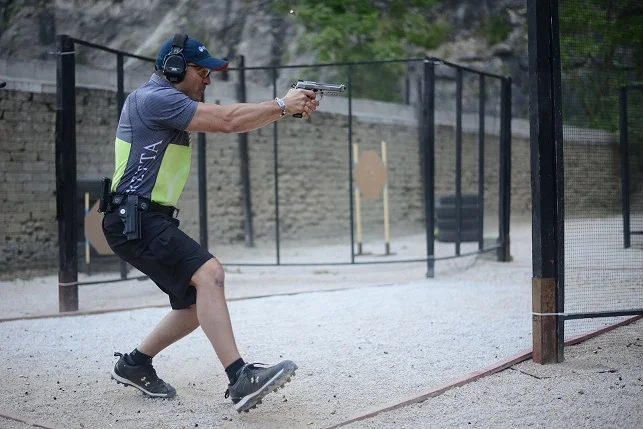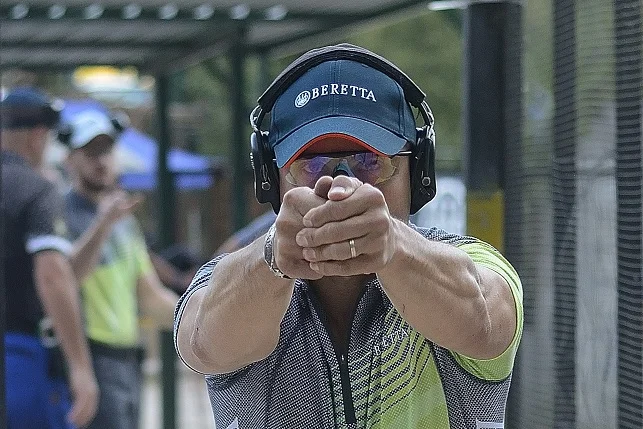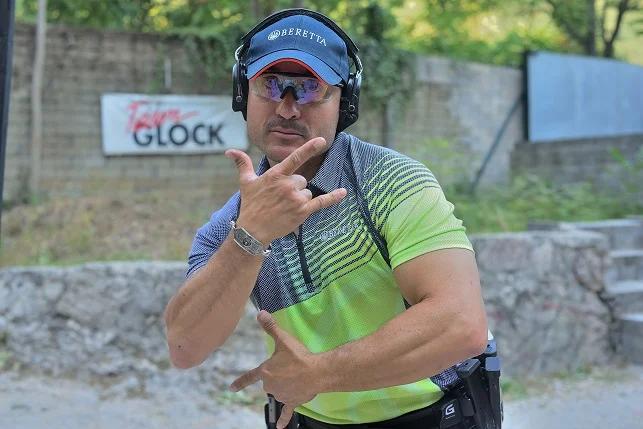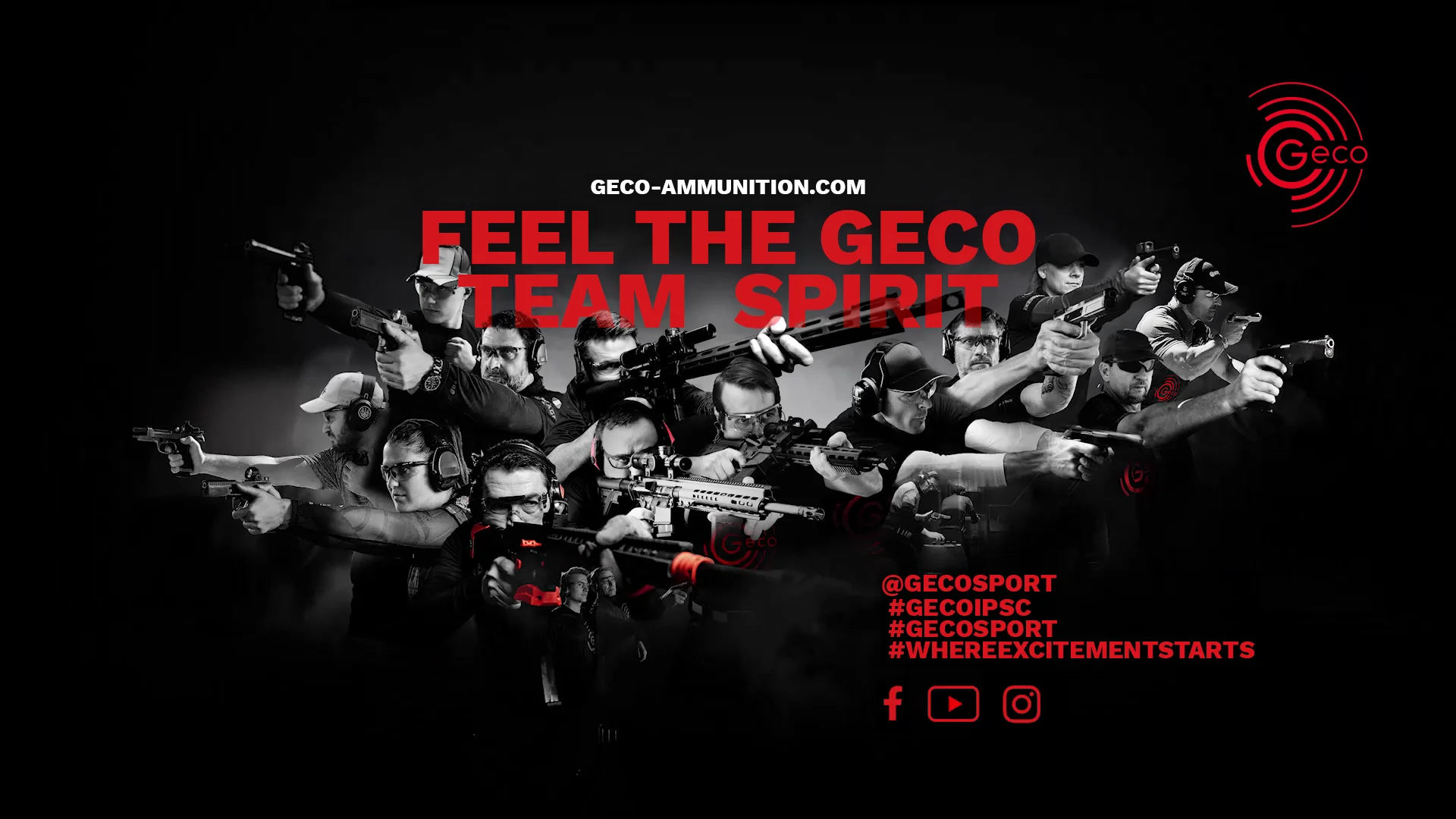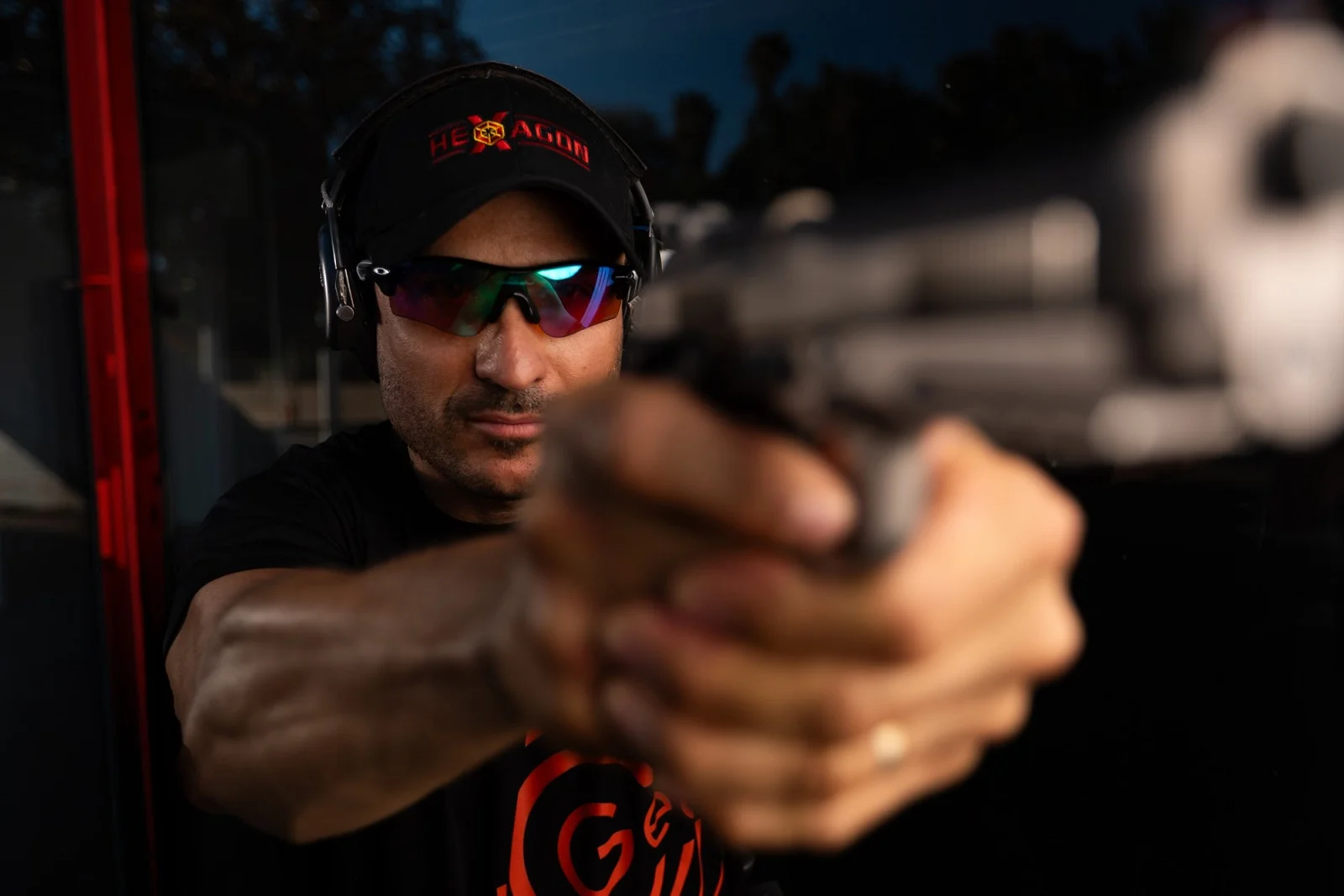
SHOOTING PORTRAIT:
Eduardo de Cobos
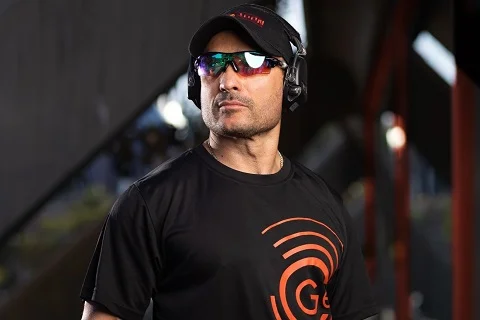
GECO IPSC Team Shooter
Eduardo de Cobos, Spain
Eduardo De Cobos, born in 1974, is an outstanding sportsman from Spain. He has been a member of the Spanish IPSC national team since 1998 and trains IPSC shooting instructors worldwide. His career began in the late 1980s, inspired by his father, a police inspector.
For over 30 years, Eduardo has been an integral part of the international shooting scene. Multiple IPSC European Champion, World Champion in the Extreme Cup and in police shooting – his collection of titles is impressive. As a Master Instructor at the universities of Barcelona and Girona and as an instructor at the police academy, he shares his extensive knowledge. He joined the BERETTA team in 2019 and has since been using the 92X Performance, a pistol that stands out thanks to its modern improvements. With GECO, he is constantly striving for excellence and shaping the future of dynamic shooting.
Eduardo's career began in the late 1980s with classic series weapons. Through intensive training and with limited means, he refined his skills, supported by his family and his employer ASTRA SPS. Numerous successes in the Open Division and later in the Standard and Production Division demonstrate his versatility and determination to drive technical innovation. With 32 Spanish championship titles in IPSC and IPA, he remains a defining figure in shooting sports.
Eduardo De Cobos, 92X Performance & GECO FMJ – An unbeatable team
An official member of the BERETTA team since 2019, Eduardo relies on the 92X Performance. This pistol combines the strengths of its predecessors with modern improvements that put it at the top of its category. GECO is proud to have Eduardo on the team and to shape the future of dynamic shooting together.
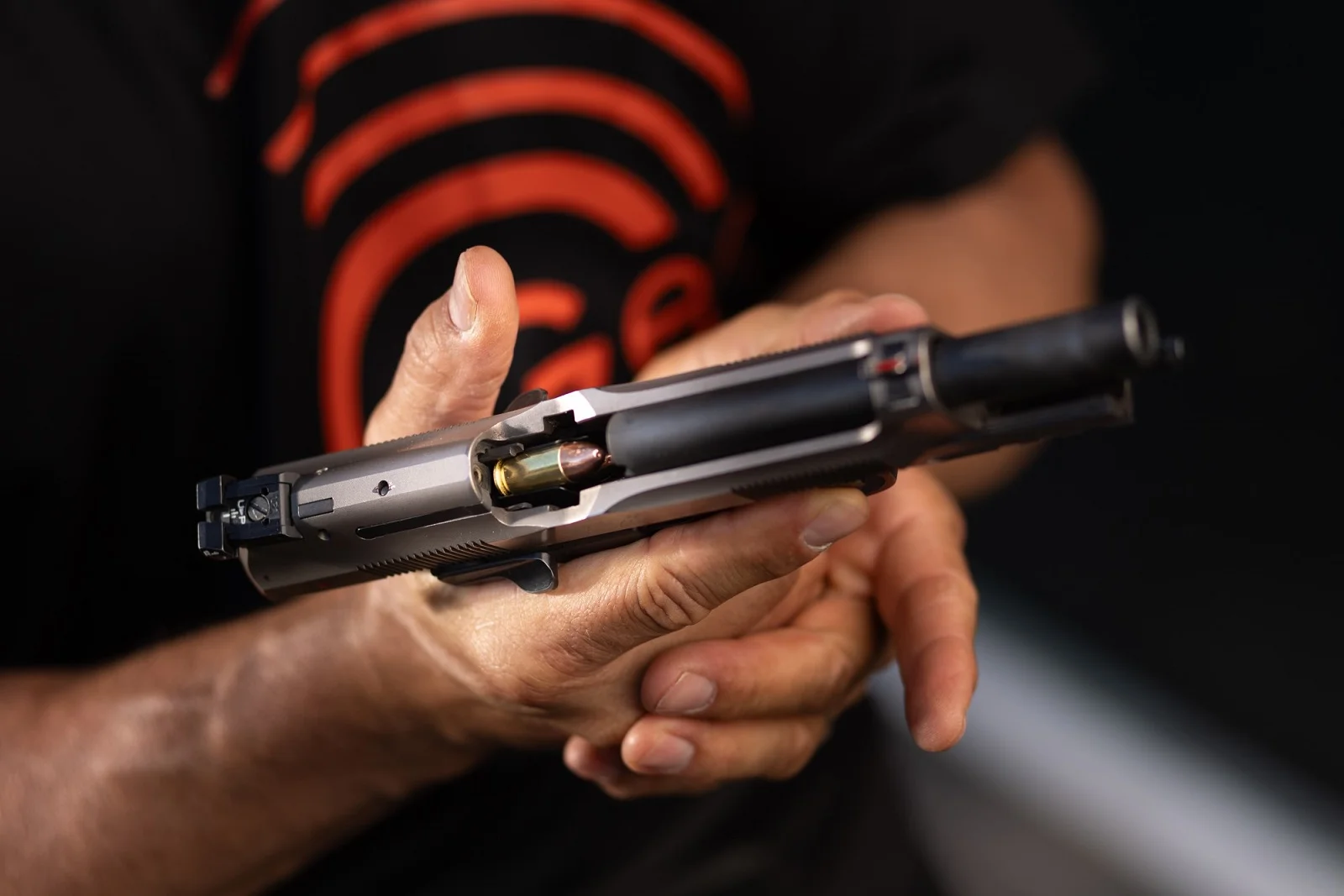
Reliable gear.
An official member of the BERETTA team since 2019, Eduardo relies on the 92X Performance. This pistol combines the strengths of its predecessors with modern improvements that put it at the top of its category. GECO is proud to have Eduardo on the team and to shape the future of dynamic shooting together.
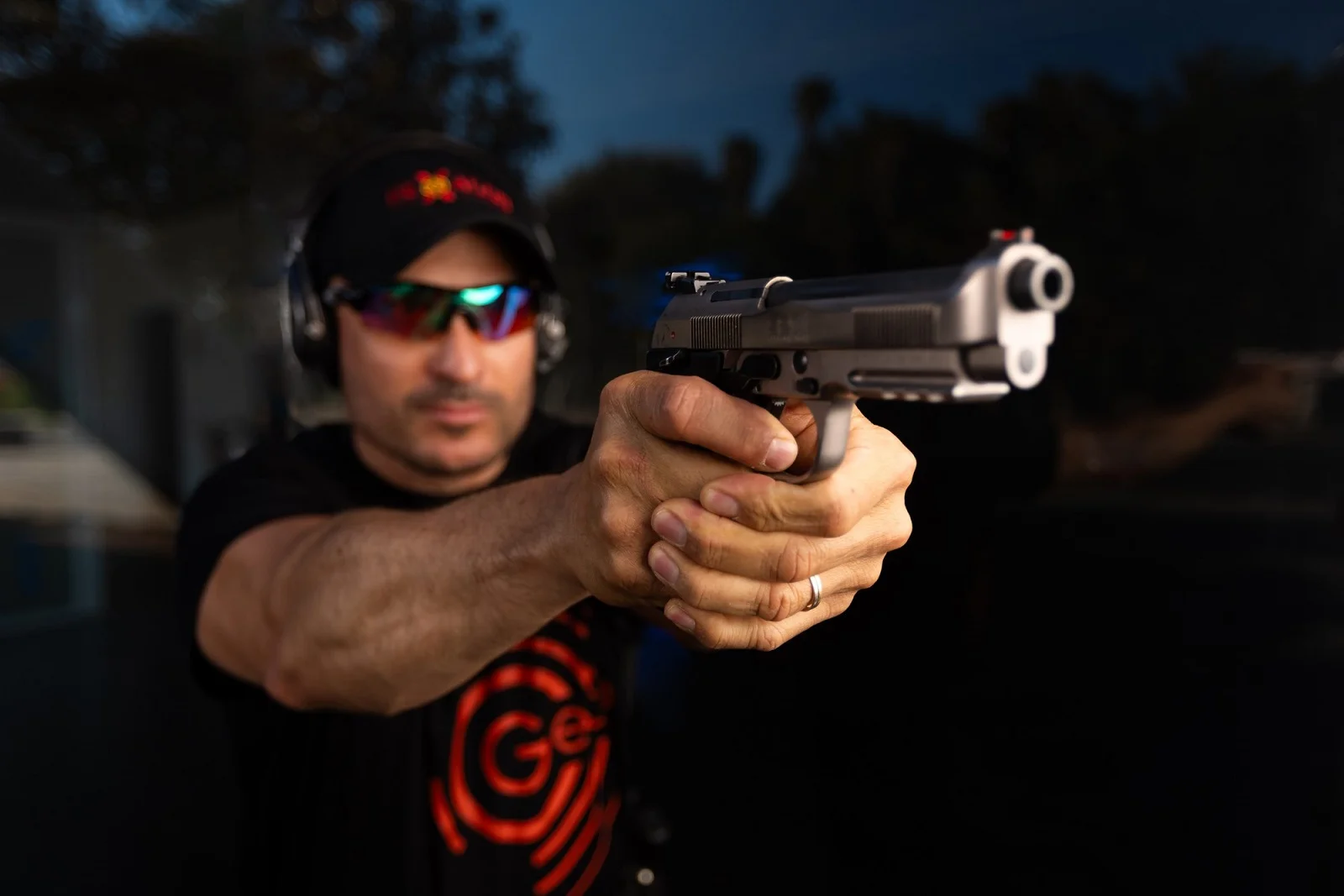
Quick-fire interview with Eduardo de Cobos – 10 questions, 10 answers:
HOW DO YOU PREPARE DURING THE OFF-SEASON?
What do you look for in dry fire training and what areas do you work on? How much time per week do you spend on dry-fire training?
I use laser ammo for my dry fire practice. Dry fire training is crucial for developing shooting skills such as shooting on the move, reloading magazines, and mastering various stances. A solid dry fire training routine is essential. For instance, I won the European Championship with just 4000 shots, while my opponents shot 15-20 times more.
Do you do any physical work? If so, what kind?
Yes, for over 30 years, I have incorporated specific functional and strength exercises into my training. I developed my own system using weights, machines, bands, and tools, studying biomechanics to enhance my performance in IPSC sports.
What about mental training? What methods do you find most helpful?
Mental training is the most important aspect of competition preparation. It’s vital to focus on your mindset during both good and bad times in a match. A strong mind is the foundation of good performance.
WHAT INVENTORY CHANGES ARE PLANNED AND WHEN?
Changes to the gun or sights?
No, I am extremely satisfied with the products I use, from ammunition to weapons, I find it an absolutely successful combination.
What is your favourite piece of equipment and why?
My Beretta 92X Performance is the tool of my success.
What is your favourite firearm and why?
The Beretta 92X Performance is my favorite due to its balance in accuracy, ergonomics, and quality. After almost 40 years and countless matches, it remains unmatched for me. However, I understand it might not suit everyone, just like not everyone can play a Stradivarius.
HOW DO YOU OBTAIN AND TEST YOUR AMMUNITION?
If you load your own ammunition, which components are most important to you?
Accuracy and heavy bullets are crucial, followed by quality gunpowder. There are many options available in the market.
Are you separating training ammunition and special competition ammunition, or do you use one type for everything?
I try to use the same ammo all the time, but sometimes I reserve the best for matches. For training, any ammo is welcome.
SEASON PLANNING
How many matches do you shoot in a normal year?
About 15 Level 1 and 2 matches, 10 Level 3, and 1 Level 4 or 5 per year.
How many international trips have you planned for the coming year?
In 2024, I have planned 8 international Level 3 matches and 1 Level 4 in Argentina.
What is your main competition for the coming year?
Next year’s main event is the World Shoot, dubbed the Golden Fish of 2025.
SUCCESSES AND DEFEATS
What is your motivation to participate in the ISPC sport or what is the special attraction?
IPSC is always a challenge. You never know what awaits you in the next match, which adds an extra adrenaline rush for IPSC athletes.
What was your most successful/pleasurable competition (last season) and why?
Many of them! The sheer joy of being at the range, enjoying matches with good competitors and friends, turns each event into a memorable experience.
What was your worst competition and why?
Probably the Level 5 World Shoot in the USA. I had physical problems with my back, elbow, and feet, making it impossible to enjoy the match.
PARTICIPATION IN A COMPETITION
What is your focus during the walkthrough?
First, develop a good resolution strategy. Secondly, analyze the strengths and weaknesses of that strategy. Finally, combine these insights to create a focused approach.
How do you deal with being the first shooter in the first stage?
It’s not a problem. Whether I am first or last, the stage is the same, and so am I.
How long before the first competition shot do you arrive at the shooting range?
Depending on the time difference from my origin, I aim to arrive one day earlier for every two or three hours of time difference.
What diet do you follow or how do you keep fit during a competition?
I increase my carb intake and adjust electrolytes based on heat and humidity. Vitamins and mineral supplements are essential before and during competitions.
Do you have a formula/basic attitude for approaching a competition?
IPSC is a shooting sport; my focus is always on accuracy. However, the focus may shift to speed depending on the stage. Competing with good shooters is always beneficial.
Which stage elements/designs do you like best, and which ones not so much?
I like all of them; there isn’t a strict formula for IPSC stages. It depends on the creativity of the stage designers.
What wisdom would you give to an IPSC novice or anyone interested in the sport on his or her first day?
Be patient. IPSC is a complex sport that requires dedication and time. The most important tools are patience, time, and dedication.

